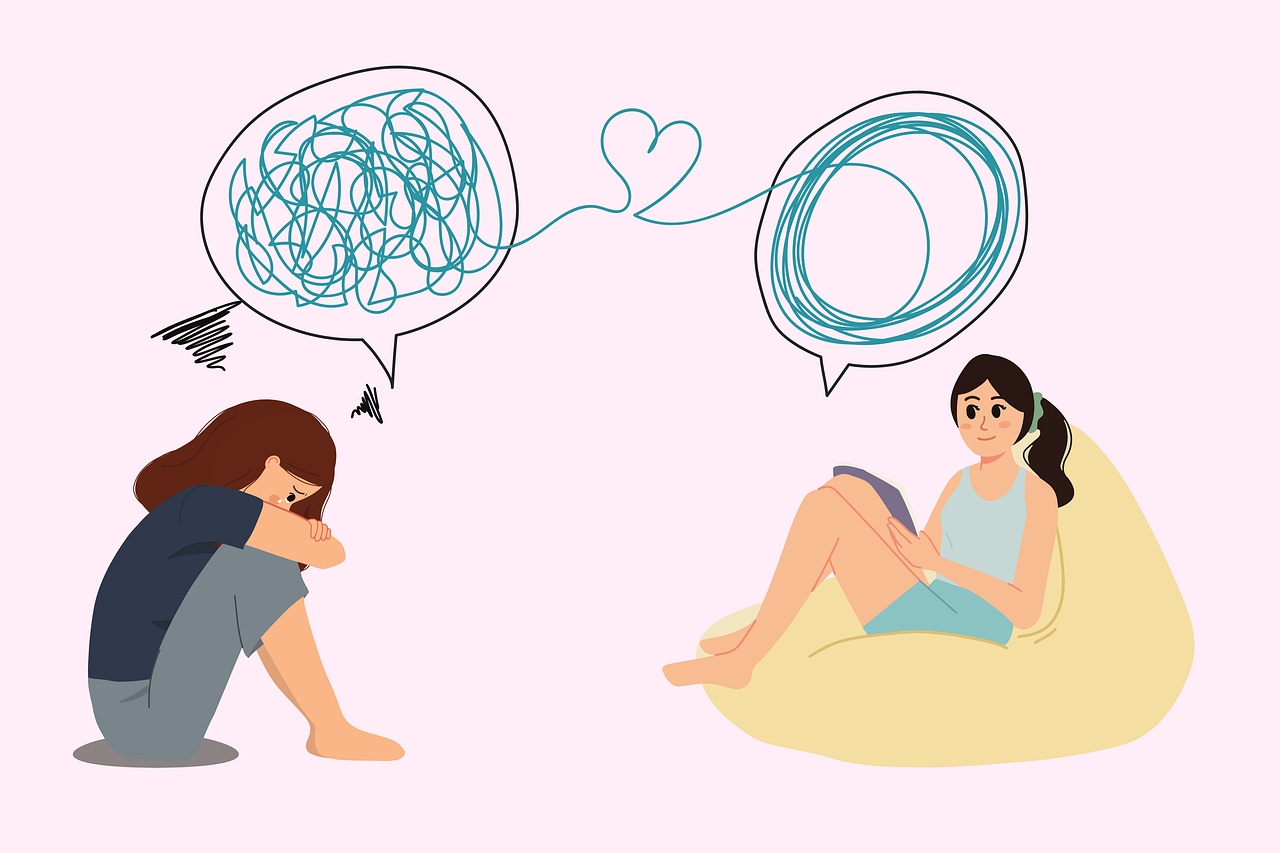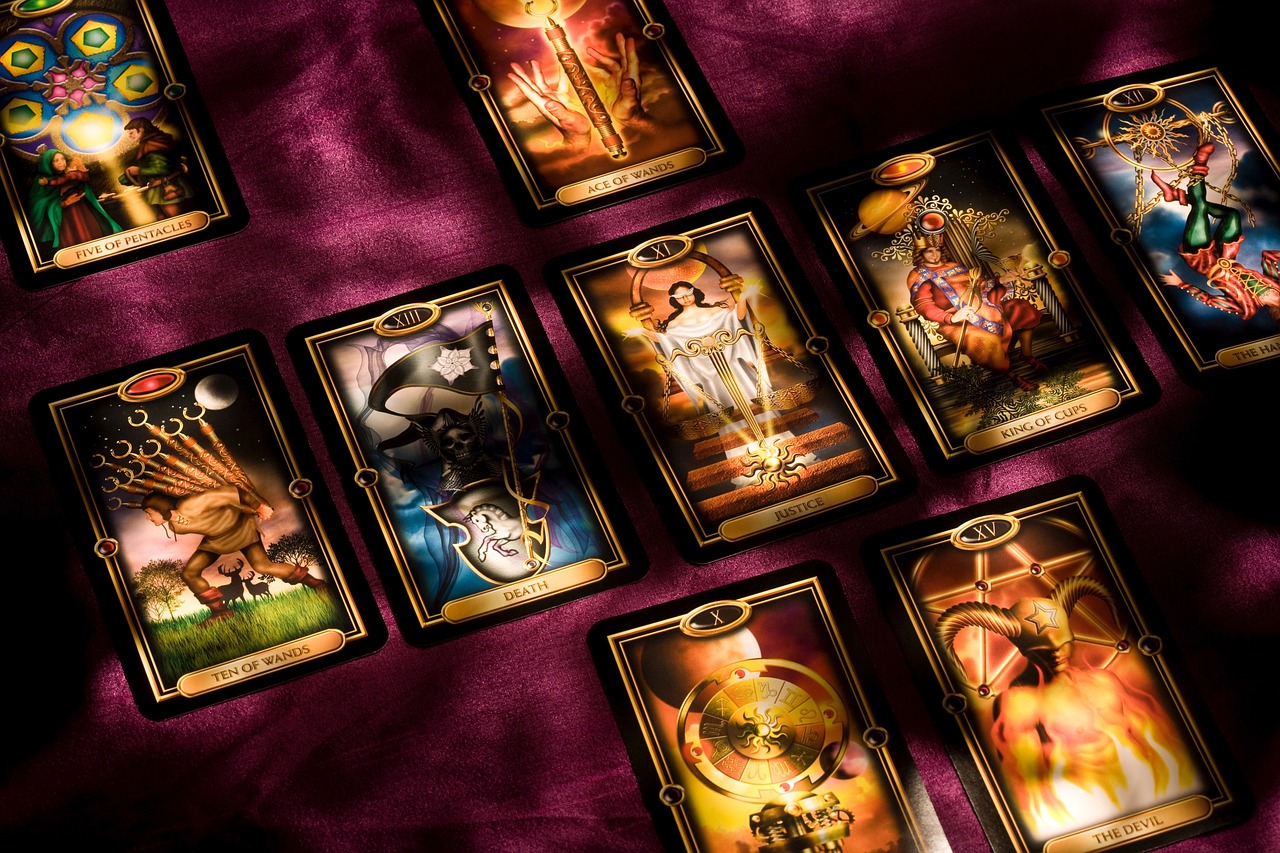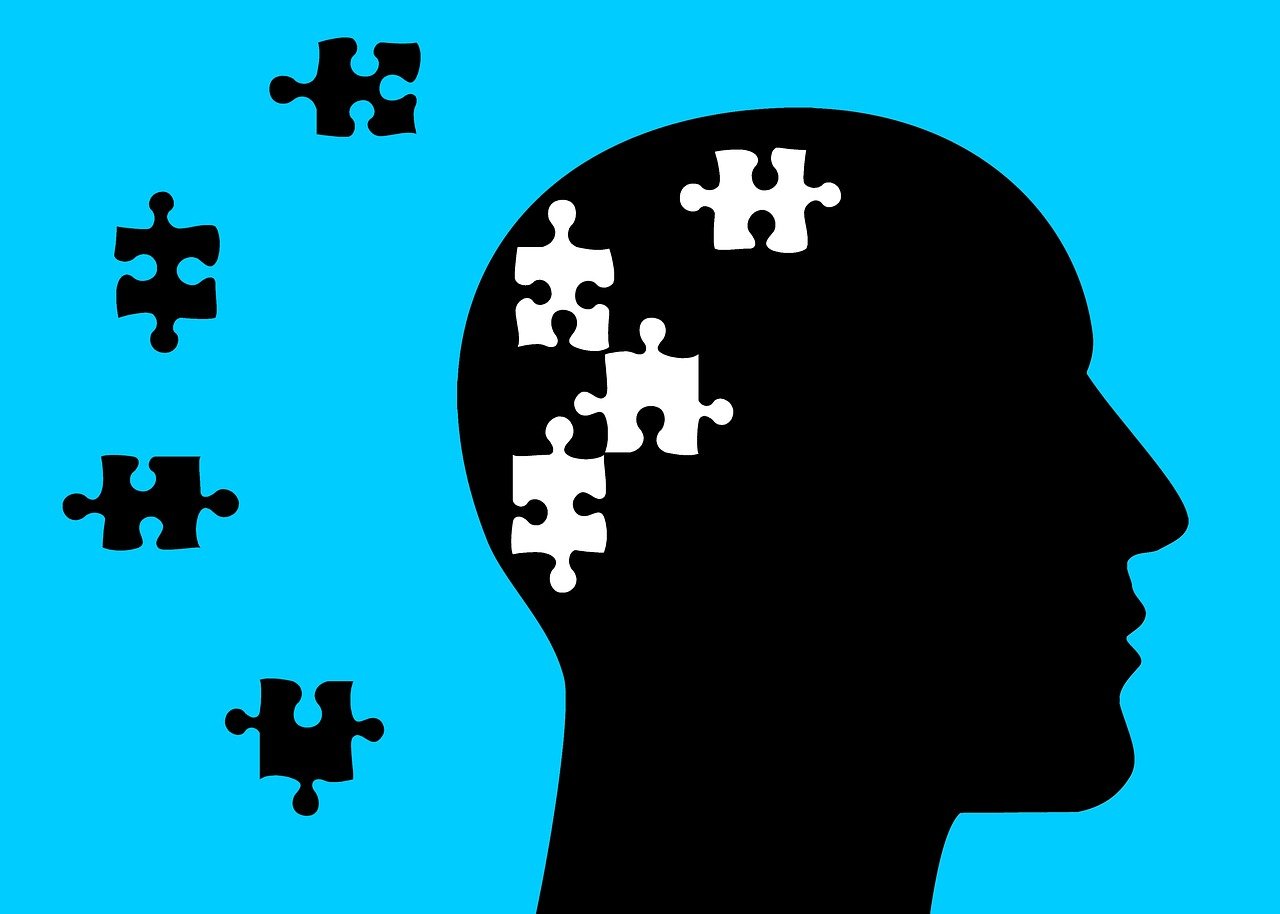Introduction
Who needs a therapist when you have dreams? In this mind-bending exploration of mental health and dream theories, we delve into the mysterious world of the unconscious mind. But don’t worry, we promise not to analyze your dreams. Unless you dream of dancing chickens...
Psychic Reading Scams and Mental Health
Psychic reading scams⁚ What are they?
Every penny counts, especially when it comes to finding answers about your mental health. Psychic reading scams, on the other hand, will happily count every penny in your wallet and leave you with more questions than answers. Talk about a cosmic rip-off!
Psychic reading scams⁚ What are they?
Psychic reading scams are like those fortune cookies you get at the Chinese restaurant, except instead of getting a vague message about your future, you get a vague message about your mental health. They claim to have unique insights into your mind, but you’ll be lucky if they can even guess your favorite color right!
These spiritual con artists use deceptive tricks to exploit vulnerable individuals seeking help. It’s like trying to find a needle in a haystack, but instead, they just keep giving you hay. And let’s not forget the undying optimism of fake psychics who claim they can cure your anxiety with a crystal ball. Sure, Jan!
Their manipulation knows no bounds! They’ll use any dishonest method, from cold readings to hot air, to make you believe they have supernatural powers. But don’t be fooled, they couldn’t predict their own lunch order if their life depended on it!
So, next time you feel skeptical skepticism creeping in, remember that psychic fraud is just a game of undue influence and questionable fashion choices. Stick to the real experts, like therapists and professionals who won’t read your mind but will definitely help you find it.
Misleading claims and fraudulent practices
When it comes to misleading claims and fraudulent practices, these spiritual con artists take the cake. They’ll promise to heal your psychological well-being faster than you can say “Abracadabra!” But let’s be real, they’re more like “Abra-cadaver” to your wallet.
These scammers have more tricks up their sleeve than a magician at a children’s birthday party. They’ll claim to have a direct line to the spirit world, but in reality, their connection is about as reliable as a dial-up internet connection.
It’s all about exploitation and manipulation for these unscrupulous tactics. They’ll make you believe you’re cursed and in need of an expensive ritual to break the spell. Newsflash⁚ the only curse here is the hefty bill you’ll be left with!
So, the next time a spiritual con artist tries to sell you their magical elixir, just remember⁚ true mental health support is based on science, not smoke and mirrors. Leave the tricks to the magicians and trust the professionals who won’t disappear with your hard-earned cash.
Warning signs and deceptive tricks
When it comes to warning signs and deceptive tricks, these spiritual con artists are like magicians without a rabbit in their hat. They’ll pull tricks out of thin air to make you believe they can read your mind, but all they’re really good at is misdirection.
One of the first red flags is when they claim to have a success rate of 100%. If they were really that good, they’d be on a Vegas stage, not in a dimly lit room with incense burning.
And let’s not forget their favorite trick⁚ the cold reading. They’ll start with general statements like “I sense you’ve experienced a loss” and hope you fill in the blanks. Well, I sense they’ve experienced a loss too… of credibility!
But the most deceptive trick of all is when they try to sell you “spiritual items” to enhance your mental well-being. A crystal for anxiety? Seriously? I’ve got a rock in my backyard that can do the same thing ⎼ and it’s free!
So, keep your wits about you and remember, when it comes to spiritual con artists, the only thing they’re truly psychic about is how to take your money!
Dream Theories and Mental Well-being
Ever wondered what those bizarre dreams say about your mental well-being? Strap on your dream catcher as we uncover the wild world of dream theories. Get ready for a rollercoaster ride through your unconscious mind, with a side of interpretive dance moves!
Understanding dream theories
Dream theories, just like the twist ending of a movie, are a blend of intrigue, confusion, and the occasional “Huh?” moment. From Freud’s psychoanalytic perspective to cutting-edge neurobiological research, these theories try to unlock the secrets of our subconscious while leaving us scratching our heads.
Freud believed dreams were windows into our deepest desires and hidden traumas. So, if you dream about an ice cream truck being chased by a giant rubber duck, congratulations! You’ve just unlocked the mystery of your unresolved childhood issues.
But let’s not forget the neurobiological basis of dreams, or as I like to call it, the brain’s wild nighttime rave. It’s like your neurons are having a dance party while you sleep, and you wake up wondering why your brain didn’t invite you.
Trying to interpret dreams is like solving a Rubik’s cube blindfolded ⏤ it’s confusing, frustrating, and you’re not entirely sure if it’s worth the effort. So, let’s enjoy the dreams for what they are⁚ a chaotic, nonsensical amusement park for our sleeping minds.
Therapeutic techniques and dream interpretation
Dream interpretation is like trying to decipher a cryptic message from your future self, except your future self doesn’t have great handwriting, and they’ve been binge-watching nonsensical sitcoms. But hey, therapists love a challenge!
Therapeutic techniques often involve exploring the symbolism in dreams. So, if you dream of being chased by a giant marshmallow, don’t worry, it just means you have unresolved issues with dessert.
But be careful, dream interpretation can be a slippery slope. Next thing you know, you’re worried that dreaming of being late for work means your boss will turn you into a desk lamp.
So, the next time you have a bizarre dream, instead of rushing to a dream dictionary, embrace the mystery. Remember, dreams are like an abstract artwork ⏤ open to interpretation, subject to wild theories, and sometimes, just better left unexplained.
Psychodynamic theories and the unconscious mind
Psychodynamic theories and the unconscious mind are like a hidden treasure hunt, where the treasure is your repressed childhood memories and the map is a confusing maze of Freudian concepts. Good luck!
According to Freud, the unconscious mind is the hidden vault where all our embarrassing moments, strange desires, and that time we thought we could fly are locked away. It’s like the attic of our psyche, filled with psychological relics and emotional cobwebs.
But let’s not forget the Oedipus complex, where Freud suggests we all secretly want to marry our mothers or fathers. Talk about a family dinner with some seriously awkward seating arrangements!
So, if you ever find yourself pondering the mysteries of the unconscious mind, just remember⁚ it’s like a carnival duck pond. You throw a ball, hoping for answers, but most of the time you end up with a plastic duck and a lingering sense of confusion;
Neurobiological basis of dreams
The neurobiological basis of dreams is like a complex recipe for a psychological soufflé. It involves a dash of brain waves, a sprinkle of neurotransmitters, and a generous scoop of confusion. Bon appétit!
Have you ever wondered why we can fly in our dreams but trip over our own feet in real life? Well, you can blame it on the brain’s “REM” cycle ⎼ the rapid eye movement responsible for our wild dream adventures. It’s like a nightly rollercoaster ride, minus the long lines and overpriced snacks.
And let’s not forget the fantastical mix of neurotransmitters that stir the dream pot. Serotonin, dopamine, and norepinephrine make for one psychedelic cocktail that would put even the most artistic mixologist to shame.
So, the next time you wake up from a dream feeling dazed and confused, just remember⁚ your brain was busy concocting a mental masterpiece while you were catching some Z’s. And if nothing else, at least you didn’t have to pay admission for the dream show!
Dream Theories and Mental Illness
Hold on tight, because we’re about to dive into the fascinating connection between dream theories and mental illness. Get ready to unravel the mysteries of dream recall, nightmare frequency, and how our sleeping minds navigate the realm of psychopathology.
Dream recall and its connection to mental health
Dream recall is like a game of hide and seek where your subconscious is the sneaky little player. Sometimes you wake up with vivid memories of your dreams, while other times it feels like your mind pulled a disappearing act.
But here’s the twist⁚ dream recall is not just about having an interesting story to tell at brunch. It turns out that poor dream recall might be connected to mental health. So, if you’re forgetful when it comes to dreams, does that mean your mind is a vacation home for mental well-being? Vacation vibes incoming!
But don’t worry if you can’t remember your dreams. Who needs dreams when you can enjoy reality? Plus, let’s be honest, some dreams are just downright bizarre. I once dreamt I was being chased by a talking taco. Maybe my subconscious was just craving a late-night snack.
So, whether your dream recall is as sharp as a samurai sword or as slippery as a soapy water slide, remember that mental health is about more than just what happens in your dreams. It’s about finding balance, embracing reality, and occasionally sharing a laugh at your mind’s creative shenanigans.
Nightmare frequency and psychopathology
Nightmare frequency and psychopathology go together like clowns and haunted houses ⏤ a terrifying combination that can leave you lying awake at night, questioning your life choices. But fear not, we’re here to shed some light on this spooky connection.
If nightmares were a sport, some people would be Olympic gold medalists. These frequent flyers of the dream realm might start to question if they accidentally joined a horror movie production instead of falling asleep. The good news is, you’re not alone. The bad news is, Freddy Krueger might be your personal cheerleader.
But hey, nightmares aren’t all doom and gloom. They can be helpful, too. Think of them as your subconscious mind’s way of saying, “Hey, pay attention!” It’s like a psychological smoke alarm, reminding you to address those underlying fears and anxieties in your waking life. Thanks, brain, for the symbolic fire drill.
So, the next time you wake up from a nightmare in a cold sweat, try to see the silver lining. You’re honing your survival skills for a potential zombie apocalypse, or maybe your mind just really wanted to star in its own horror flick. Either way, sweet dreams...or should we say, scary dreams?
Dream analysis and trauma
Dream analysis and trauma are like two puzzle pieces that got mixed up at a jigsaw puzzle factory. Trying to fit them together can be as confusing as trying to solve a Rubik’s cube with your eyes closed.
Dreams have a way of unpacking the baggage of our traumas, like a travel agency that specializes in emotional baggage. It’s like your mind saying, “Hey, remember that time you were chased by a swarm of angry squirrels? Let’s unpack that trauma, shall we?”
But don’t worry, dream analysis isn’t all doom and gloom. Sometimes, your dreams can offer clues and insights into your healing journey. It’s like they’re playing therapist behind your back, but with a softer couch and no waiting room magazines.
So, the next time you wake up from a dream that feels like a therapy session, take a moment to appreciate your mind’s attempt to make sense of the past. And remember, while dreams may stir up old wounds, they also have the power to promote healing and the occasional laugh at the absurdity of it all. Stay dreamin’!
Conclusion
Well, folks, we’ve reached the end of our wild journey through the realms of mental health and dream theories. We’ve explored psychic reading scams, analyzed dreams that would make Salvador Dali jealous, and laughed at the quirkiness of our own minds.
Remember, when it comes to understanding our mental well-being, it’s important to approach with a healthy dose of skepticism. Don’t fall for the tricks of spiritual con artists or the booby traps of dream analysis gone wrong. Trust the experts, like therapists and psychologists, who use evidence-based practices and don’t claim to have supernatural powers.
And don’t forget to embrace the fascinating mysteries of our dreams. They may not always make sense, but they offer a glimpse into the wacky workings of our minds. So, the next time you dream of participating in a salsa-dancing competition with an avocado, just smile and say, “Well, that was one guac-ing good dream!”
Stay curious, keep laughing, and remember to always find joy in the extraordinary tapestry of our mental health and dream-filled adventures. Sweet dreams and mental well-being to you all!



